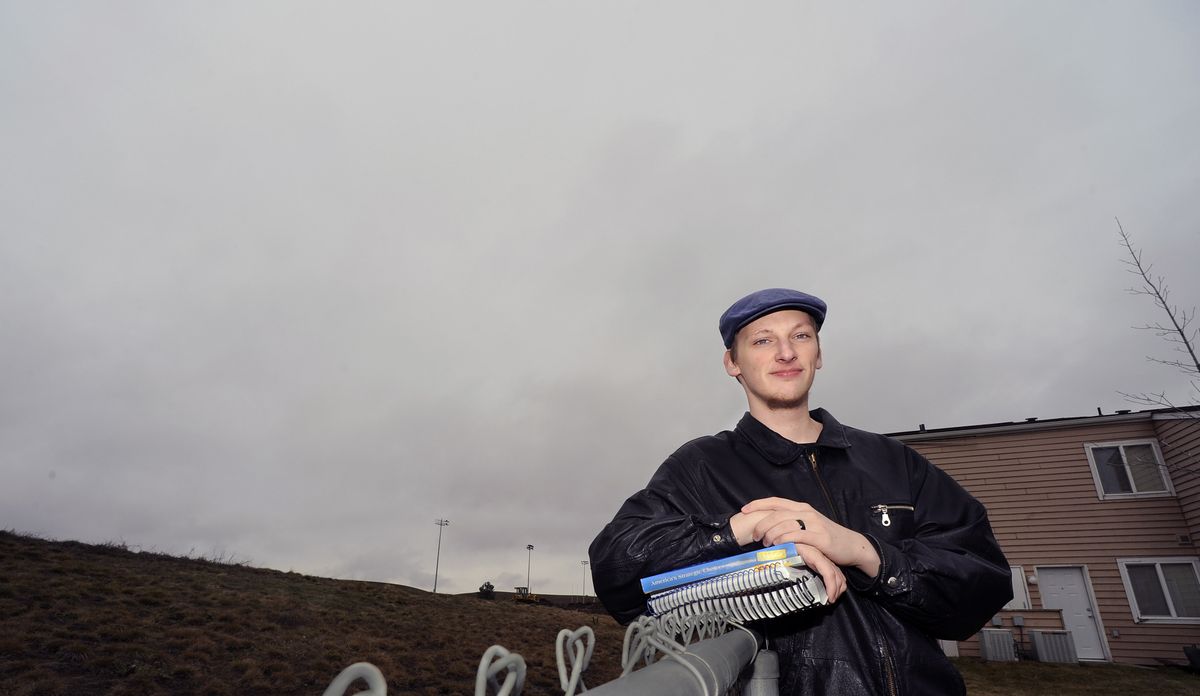Program helps young adults aging out of foster care system

Eighteen can be an exciting age. Many young people anticipate attending college, while others plan to work or join the military. And most are eager to move out from under their parents’ wings and try to fly on their own.
But for teens aging out of the foster care system, turning 18 can be frightening. Bridget Cannon, director of youth services at Volunteers of America, said, “Statistically, the majority end up homeless.”
It’s not that the teens don’t have options. Foster teens participate in an independent living program and receive information about college scholarships available to them. Some may even have the option of staying with their foster family, if the family agrees to house them. But according to Cannon, most move out on their own.
“A lot of them don’t have a clue what home is,” she said. And so they flounder.
That’s why two years ago Molly Allen and Coleen Quisenberry founded Safety Net with a mission to assist foster youth find immediate emergency financial aid and the necessary support to continue their education, enhance their job skills and transition to self-sufficiency and independence.
For Allen, the mission is personal. “My son was a foster care youth who my ex-husband and I adopted. He was 10 when he came to live with us.”
Instead of a traditional social service agency, Allen had a different vision for Safety Net: “We decided we’d be more like aunts to help them pick up the pieces – a safety net like our parents were for us.”
Since its inception, Safety Net has helped approximately 50 foster teens aging out of the system. The organization has provided things like rent assistance, school tuition, books and supplies, bus passes, food gift cards, and money for dental work. In addition, thanks to a partnership with Northwest Bedding, Safety Net provides a new bed set and frame for every foster teen going into an independent living situation.
Currently, Safety Net operates under the umbrella of Volunteers of America, but Allen said, “We hope to receive our own nonprofit status by August.”
The assistance provides much more than practical necessities. Cannon said, “Safety Net steps in to help normalize their lives.”
Mark Casteel agreed. From the age of 11, Casteel has had to take care of himself. “My father didn’t want me and my mother abandoned me.”
He came to foster care in an unusual way: At 16 he asked to be made a ward of the court. “My parents didn’t even show up for the hearing,” he said.
For five years he’d bounced from friend to friend and from shelter to shelter. But he faithfully attended West Valley High School. “I had something to prove,” Casteel said. “I didn’t want to be like my parents, and I knew I could do something with my life.”
The head custodian at West Valley knew of Casteel’s plight and became a licensed foster parent to care for the struggling teen. “He took me into his home, and I stayed there until I graduated.”
But the financially strapped foster care system doesn’t pay for nonessentials. When Casteel wanted to be part of the West Valley band, it was Safety Net that purchased a saxophone and keyboard for him. When he longed to attend senior prom, once again he turned to Safety Net.
“They helped me rent a tux and buy flowers,” he said. “They came with me and made the appointments.” Just like the loving aunties Allen had envisioned.
But it was Safety Net’s first gift to him that the now 19-year-old Casteel can’t get over. “I was taking computer classes at Spokane Skills Center,” he said. “I needed a laptop to keep up with the homework and they purchased one for me. It blew me away!”
Casteel is married and attending Eastern Washington University. He’s still using that laptop. “Growing up, I didn’t really have anything to attach myself to except technology,” he said. “I’ve always wanted to see my name in video game credits.”
He’s also glad he didn’t give up on high school, even when it meant getting up at the crack of dawn to take an STA bus from Crosswalk to school. Casteel was one of 20 West Valley students to receive a Gates Foundation Achievers Scholarship – which is funding his education. “West Valley was the only school in the area that offered it,” he said.
He and his wife, Tara, had similar childhood experiences. “We both felt we were forced to grow up at an early age. It’s odd to see people in college who don’t know how to cook or do laundry.”
Stories similar to Casteel’s keep the founders of Safety Net motivated to do more. “We’re excited about expanding into northern Idaho,” Allen said.
For people like Cannon, who daily work with kids aging out of the foster care system, Safety Net offers much-needed hope. “These kids often have no sense of self-worth,” she said. “One boy said to me, ‘I must have been a really bad kid for them to take me away from my mom.’ Safety Net is invaluable. What it’s saying is ‘You’re worth something.’ ”
That’s definitely the message Casteel received. “I grew up very sour and not optimistic about people,” he said. “But they (Safety Net) are so kind and generous – they just want to help. If it wasn’t for Safety Net, I wouldn’t be where I am right now.”